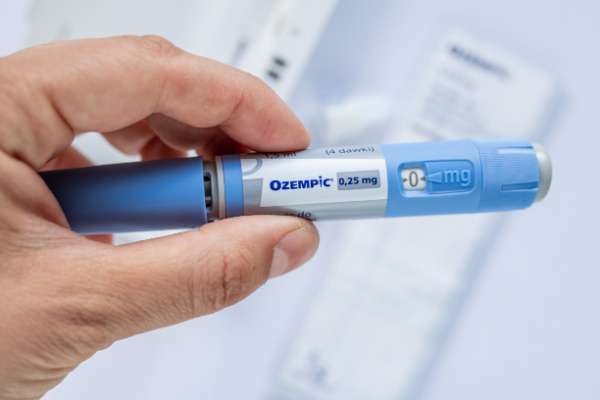As more people take new weight-loss drugs, such as semaglutide, there are a growing number of reports of potential side effects, including severe mental health issues — leading drug regulators in Europe to investigate the safety of these drugs.
As Advisory Board reports, semaglutide mimics a hormone called glucagon-like peptide-1 (GLP-1) to targets areas of the brain that regulate appetite and food intake. The drug is available in two forms: Ozempic, a diabetes treatment, and Wegovy, a higher dose of the drug for weight loss.
As more people take semaglutide, there have been more reports of potential side effects from the drug. Aside from the more common gastrointestinal issues, there have been reports of unintended muscle mass loss, a potential for increased risk of miscarriage or birth defects, and pancreatitis.
Now, some patients are reporting severe mental health issues, including depression and suicidal thoughts, after taking semaglutide. According to FDA’s adverse event reporting system, there have been 489 reports of patients experiencing anxiety, depression, or suicidal thoughts while on semaglutide.
Currently, regulators in Europe, including the European Medicines Agency and the U.K’s Medicines and Healthcare products Regulatory Agency, are investigating the potential link between semaglutide and other GLP-1 drugs and mental health issues.
In the United States, FDA has not opened its own investigation but said it is monitoring the situation. “We continue to conclude that the benefits of these medications outweigh their risks when they are used according to the FDA approved labeling,” said FDA spokesperson Chanapa Tantibanchachai.
Tantibanchachai also noted the Wegovy includes a warning about suicidal thoughts on its drug label. However, Ozempic, the version of the drug intended for diabetes (which is also used off-label for weight-loss), does not include the same warning.
More Research is Needed
Although there have been several reports of mental health issues from patients taking semaglutide, it is not clear that these issues were specifically caused by the medication. Health experts have also noted that mental health side effects from semaglutide are generally rare.
“As far as I’m aware, I have not seen it once in my patients,” said Eduardo Grunvald, an obesity medicine physician at UC San Diego Health. He added that other variables could play a factor in the potential mental health issues patients are experiencing.
“There are some reports of suicidal ideation coming out of people who’ve had bariatric surgery, which raises the question: If there is a causation, is it from the therapy or does significant, massive weight loss cause any problems there?” Grunvald said.
Similarly, Tom Wadden, a psychology professor at the University of Pennsylvania’s Perelman School of Medicine who helped oversee some of Wegovy’s clinical trials, said he doesn’t believe “there’s a strong signal from this medication or class of medications that it’s associated with suicidal ideation, or with depression.” He also noted that even though there were a few patients who reported suicidal ideation in the Wegovy trials, “it seemed to be related to life events occurring” rather than the medication.
However, Amy Rothberg, an endocrinologist at the University of Michigan, said patients who were recruited for clinical trials were likely screened for depression, anxiety, and suicidal thoughts and may not reflect the patients currently taking the drugs.
“You know, that’s not necessarily what goes on in clinical practice,” Rothberg said. “And so there are going to be people who have major depressive disorder, who may be getting treatment, but may have an enhanced susceptibility to having worsening anxiety or depression on these drugs that we just did not account for.”
Advisory Board’s Chloe Bakst notes that there isn’t a lot of clinical trial data on the impact of semaglutide in patient populations with preexisting mental health diagnoses, and that’s the reality for nearly all new medications. This is why real-world data is so important.
There will likely be more reports of new side effects in the coming months as more patients take the medications — this is the nature of drug innovation.
According to Susanne Miedlich, an associate professor of medicine at the University of Rochester Medical Center, more research is needed to determine how semaglutide impacts patients with a history of depression or suicidal ideation and if patients taking the medications for diabetes respond differently than those taking them for weight loss. “If you give the same drug to a different population, you could, theoretically at least, have different outcomes,” Miedlich says.
The demand and interest in medications like Ozempic and Wegovy can be a catalyst for increased training for providers on symptom monitoring and care protocols for patients pursuing clinical weight loss.
—
Photo Credit: natalia gh / Shutterstock.com
